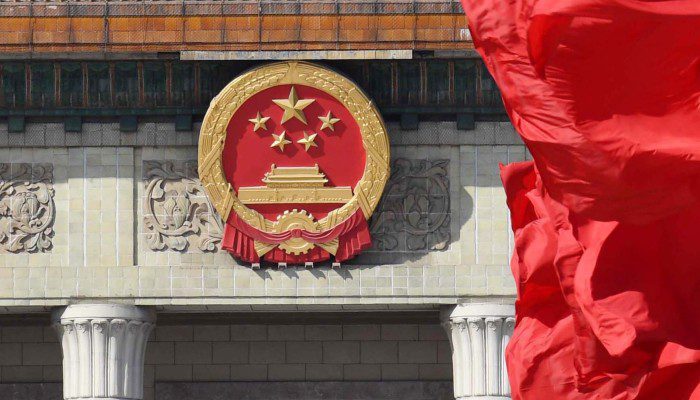China’s new Foreign Investment Law (FIL) will be effective from January 1, 2020, replacing the current laws that regulate foreign-invested enterprises (FIEs). The government has introduced important changes with the new law in an attempt to further open up its economy and improve the business environment for foreign investors.
Have a look at one of our previous articles: China’s New Regulation to Improve the Business Environment
In this article, you will discover the main changes adopted and how they will affect foreign investments and FIEs in China. Keep reading!
Introduction of China’s new Foreign Investment Law
The National People’s Congress of China passed the new Foreign Investment Law on March 15, 2019.
On January 1, 2020, the new law will become fully effective and the three current laws regulating FIEs will be abolished at the same time. These three laws are the Law on Sino-Foreign Equity Joint Ventures, the Law on Wholly Foreign-Owned Enterprises, and the Law on Sino-Foreign Cooperative Joint Ventures (collectively also called the “Three FIE Laws”).
However, the new law grants a 5-year transition period to FIEs established before January 1, 2020, to avoid sudden disruptions.
Key provisions & impacts
Equal treatment & Investment promotion
First of all, the new law ensures that foreign investments that are not on the negative list get the same treatment as domestic investments. For instance, in the application processes for licenses or government procurements, the competent authorities have to treat foreign and domestic investors equally.
Additionally, the new FIL also focuses on four key factors which will ensure that foreign and Chinese investors compete on an equal footing in China. These include:
- Equal market entry
- Equal access to governmental support
- Equal weight in rulemaking (in the formulation of industrial standards)
- Equal fund-raising opportunities (in corporate bonds, public offerings…)
Investment Protection
China has also emphasized the protection of foreign investors’ intellectual property rights (IPR) in order to address the two major concerns of foreign investors.
Under the new law, the government is not allowed to force technology transfer “by administrative means” and it has to keep trade secrets of foreign investors or FIEs. Foreign investors will also be able to remit more types of profits across borders. Thus, this highlights China’s willingness to financially open up the country.
Furthermore, the new FIL introduces a complaint system that will facilitate communication between foreign investors and the government. It will give foreign investors the possibility to make appeals, get consultations and use other public services.
Investment management
In terms of information reporting, the duty of foreign investments information disclosure will be limited to the information deemed “necessary”. Therefore, the authorities will not require as much information on foreign investments as previously.
Furthermore, another important part of the new foreign investment law is the implementation of a national security review. According to the provisions, such reviews may be conducted on foreign investments that are affecting or could potentially affect the country’s national security.
It is also crucial to understand how the new law is going to affect the organizational form and operating rules of FIEs in China. As explained above, the new law on foreign investment will replace the “Three FIE Laws”.
According to the new law, all FIEs will be subject to PRC Company Law and Partnership Enterprise Law. This will especially have an impact on Joint Ventures (JV) established before January 1, 2020, as their structure and organization greatly differ from those laid out in the Company Law.
Therefore, existing JVs will have to be restructured in several aspects such as their share transfer system and voting rules.
Concerns about the new Foreign Investment Law
Some observers are concerned about the rather vague wording of some provisions, which makes the law less transparent and potentially difficult to implement.
Let’s take for instance the provisions about investment protection. As mentioned earlier, the said law stipulates that technology transfer cannot be forced “by administrative means”. However, it does not clearly define these means as well as the non-administrative means which are not mentioned in the provisions.
The law also states that the government can requisition or expropriate foreign investments under special circumstances for the “public interest”. Some analysts argue that this could empower the State to intervene in foreign investments, especially for retaliation purposes in the event of a dispute with another country.
Regardless, expropriation or requisition of foreign investments will be done according to the law, leading to “fair and reasonable compensation”.
On the other hand, the government has already issued the draft implementation regulations, however, the president of the European Union Chamber of Commerce in China, Joerg Wuttke, stated that implementation regulations seem to be incomplete as they don’t include any penalty clause so far.
Nevertheless, Wuttke commented on the new foreign investment law, saying that “It is surprisingly accommodating to concerns that we had.”
Key Takeaways
With the new FIL coming into effect next year, foreign investors should get ready for a great number of changes in China.
This new law is not only set to promote investment, ensure equal treatment and protect foreign investments, but it also introduces a new system of investment management. This will lead to major changes in the organizational form and corporate structure of FIEs – especially Joint Ventures – in China.
The Chinese government has yet to pass the final implementation rules of the new FIL. Until then, foreign investors will have to wait amid speculations.Do you need help with the transition to the new foreign investment law in China? Get in touch with our team for a consultation and follow us on social media to receive the latest news.
Our experienced team has the necessary expertise and the know-how to support you with your business – have a look at the services we offer.
See how much salary you receive after tax and check your company value without leaving WeChat!
Also, our Mini Program can estimate the salary in your industry, for your experience level and position. A huge help for salary negotiations!







